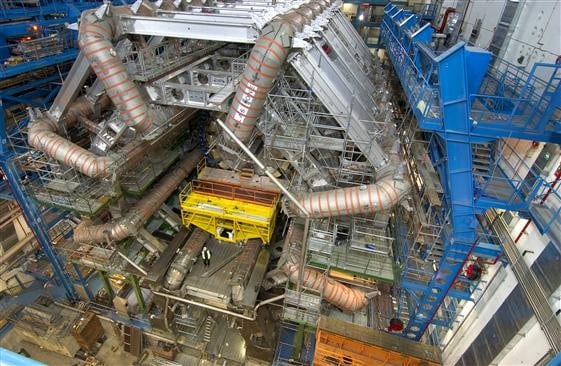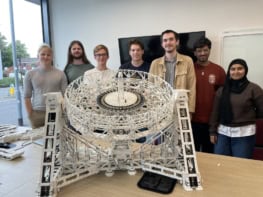
Scaffolding on the LHC’s ATLAS detector during construction. Credit: CERN
It may seem odd to think of CERN’s Large Hadron Collider (LHC) as a “time machine”. After all, in its usual science-fiction sense, the phrase refers to a telephone-booth-sized device you climb into before zooming off to explore the future, like the hero of H G Wells’ novel. Yet as filmmaker Yariv Friedman points out in The Time Machine, the LHC should allow physicists to study what happened in the instant after the Big Bang — thereby transporting them, in some sense, through 13.7 billion years of cosmic history.
Friedman’s documentary on this real-life time machine follows a multilingual team of scientists through the final stages of the collider’s construction, where footage taken inside the ATLAS detector offers ample proof of its complexity. Here, even the scaffolding looks complicated, like a giant adventure playground crawling with hard-hatted engineers and physicists. Interviews with scientists offer glimpses of the non-technical challenges; one team leader describes his task as “management by coffee…you have to drink a lot of coffee with a lot of different people to get to the end product”.
The most telling comments, however, come in the run-up to the collider’s gala opening in September 2008. ATLAS’ technical coordinator declares that the LHC will work because “behind every nut or bolt is someone who cares”, while another scientist confesses that he cried when he saw the first particle traces. After this initial success, the shutdown nine days later, “felt like a kick in the teeth,” admits project manager Lyn Evans. Like the project it chronicles, The Time Machine doesn’t quite get off the ground within its hourlong running time, but there’s some great material in this near-miss.



